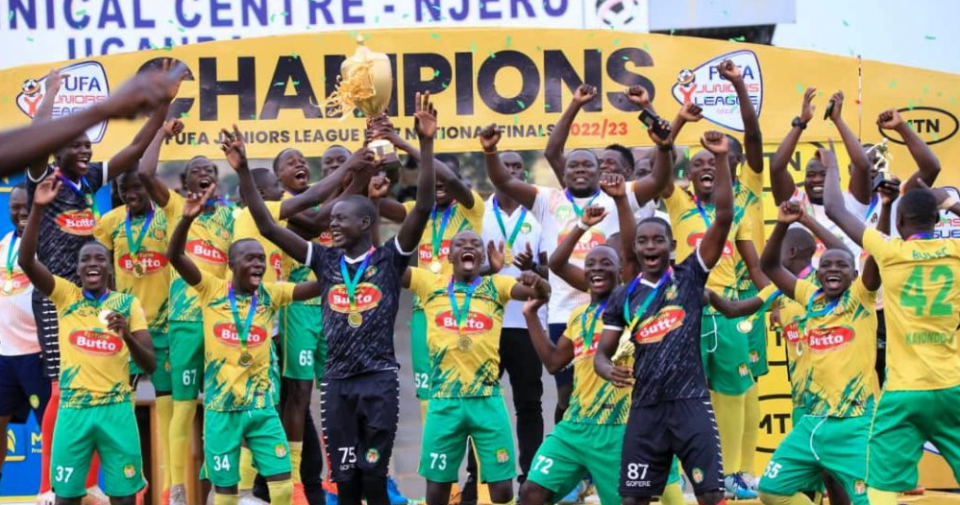
BoU top official urges SACCOs to grow into producer cooperatives
April 18, 2019
WHO releases first guideline on digital health interventions
April 18, 2019By George Mangula
The Federation of Uganda Football Associations (FUFA) has again been handed the opportunity to host two high Confederation of Africa Football (CAF) sanctioned workshops.
The two workshops fall in the club licensing docket where 52 participants coming from 26 countries will attend from the designated period running from 21st-26th at Sheraton Kampala Hotel.
It will be the third time that Uganda is hosting CAF organised sanctioned events in a space of one year.
FUFA Club Licensing Chairman Rogers Byamukama confirmed the latest developments during the weekly press conference at FUFA House in Mengo, Kampala on Wednesday.
‘After successfully hosting the CAF Junior Referees programme and the meeting for CAF futsal and beach soccer committee, CAF has once again entrusted FUFA with yet another opportunity to host another CAF workshop. This is the confidence that CAF has in Uganda,” Rogers Byamukama, Chairman FUFA Club licensing committee.
“We have prepared well to host the CAF Club Licencing Workshops. Hosting all these delegates across the continent is a strong message to the Government that sports is a key driver of tourism in Uganda. These delegates will be accommodated in Uganda, they will spend and contribute to foreign revenue,” he added.
In September 2018, FUFA hosted 41 participants who took part in the CAF Young Talent Referees workshop that attracted the youngest international referees on the continent.
Early 2018, CAF Futsal and Beach Soccer committee held its meeting in Entebbe.
The Club Licensing workshop will be segmented into two groups over two periodical sessions. Each country will send the Club Licensing Manager and Chairman of the Club Licensing Committee.
The first workshop will be held on 22nd and 23rd April while the other on 25th and 26th April each with 26 participants.
‘CAF is trying to make sure football organisation spreads further to clubs at all levels by holding such educational sessions that improve the beautiful game, officials say.
The objectives of the workshop are;
- Provide Federations with an update on the club licensing system at the continental level
- Receive a full update on the status of the club licensing system at National level
- One on one meetings with Member Associations (MAs) in order to provide special attention and assist them with specific needs
- Assist the MAs with near future planning, in order to have clubs ready before the deadline for engagement in the next CAF Inter Club competitions
- Organize interaction group sessions between MAs to share best practices.
Countries taking part (26 Countries, 2 participants from each country):
- 22nd-23rd April 2019: Botswana, Egypt, Gambia, Ghana, Kenya, Libya, Uganda, Namibia, Seychelles, Somalia, South Sudan, Lesotho and Liberia
- 25th-26th April 2019: Angola, Eritrea, Ethiopia, Tanzania, Zanzibar, Mozambique, Malawi, Nigeria, South Africa, Sudan, Swaziland, Zambia and Zimbabwe.
- Instructors: Ahmed Mohamed Mohamed Mokhtar Harraz (Egypt), Sidat Muhammad Feizal (Mozambique), Dasoberi Emmanuel Newton (Ghana), Bosilong Kabelo Keorapetse Hubert (South Africa), Middleby Robert David (Australia), Abubakar Salihu (Nigeria).
What’s club licensing?
Club licensing is a tool for both the development and bench-marking of professional football clubs. Under the Club Licensing System, clubs need to comply with certain criteria to participate in FUFA/CAF/FIFA competitions.
The FUFA Club Licensing exercise makes sure that clubs are complying with the criteria before they are issued with licenses to play at the start of every season.
By implementing the Club Licensing System football clubs benefit by:-
- Developing strong governance and organisational structures
- Implementing stable financial management and reporting
- Improving technical standards of coaches and clubs
- Increasing reliability, credibility and integrity of the clubs and league
- Promoting and continuously improving the standard of football
- Engaging qualified coaches
- Encouraging youth development
- Improving infrastructure facilities
- Improving the clubs’ administration, management and organisation.
- Raising economic and financial standing of the clubs through effective marketing and commercial exploitation.









